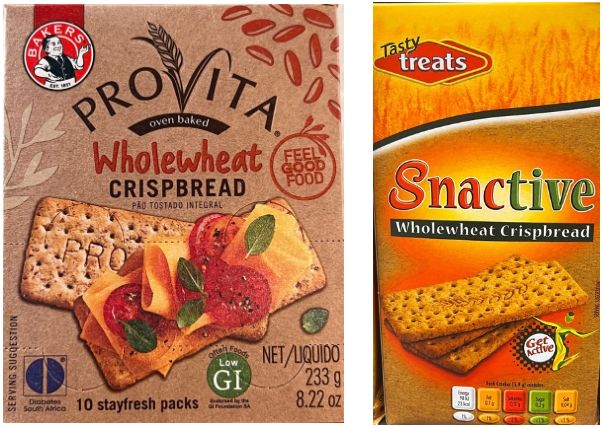- within International Law, Environment and Finance and Banking topic(s)
In this article, we'll discuss a recent South African trade mark infringement and passing off judgment, the unusual case of National Brands Limited v Continental Biscuit Manufacturers (Pty) Ltd.
National Brands
National Brands Limited is the manufacturer of a snack biscuit that is very well known in South Africa, a biscuit that is sold under the trade mark PROVITA. National Brands has a South African trade mark registration for the name PROVITA that goes all the way back to 1966. The trade mark PROVITA has apparently been in use in South Africa for some 80 years.
Continental Biscuit
Continental Biscuit Manufacturers (Pty) Ltd also manufactures and sells snack biscuits in South Africa, most notably, a product that was launched in 2012 under the trade mark SNACTIVE. This product competes directly with the PROVITA brand.
When snack brands go to war
In 2020, eight years after the launch of SNACTIVE, National Brands sued Continental Biscuit by way of motion (application) proceedings for trade mark infringement, as well as passing off. National Brands claimed that the trade mark PROVITA is extremely well known in South Africa, as are the biscuits sold under the trade mark. National Brands said that the distinctive features of its PROVITA snack biscuit are the following:
- the rectangular shape of the biscuit;
- the rounded edges of the biscuit;
- the unique patterns of docking holes on the biscuit.
The basis of the claim
National Brands went on to argue that "members of the public will immediately identify the PROVITA trade mark as well as the PROVITA biscuit shape, appearance and packaging with National Brands."
National Brands also said that the SNACTIVE biscuits are "virtually identical in shape and appearance to the PROVITA biscuit." A survey presented to the court showed that some 53% of participants mistook SNACTIVE biscuits for PROVITA biscuits, and that much of this confusion was based on the shape and the look of the product.

The High Court judgment
The case was heard by Judge Mbongwe of the North Gauteng High Court. The judge started off by looking at the law:
The law
The judge discussed certain legal principles:
- The definition of a mark in the Trade Marks Act, 1993 covers, inter alia, a device, a container and a shape. "A mark is distinct from the thing marked and therefore the goods themselves could not constitute a 'mark' for purposes of the Act."
- A mark is a badge of origin, it does not grant copyright-like protection.
- Confusion between trade marks involves considering issues such as the notional customer and the dominant features of the marks.
- In order for there to be passing off, there must be a misrepresentation that is calculated to injure goodwill and causes damage.
Applying the law to the facts
The judge came to a conclusion that essentially goes as follows: National Brands does have a registered trade mark (PROVITA), but that trade mark does not grant it rights to the "product itself" (the biscuit), and there has been no infringement of that trade mark.
Some quotes from the judgment
The judge made a number of pertinent remarks, such as: "By seeking to claim a right to the product type, its shape and appearance, the applicant in effect seeks a continuation of its monopoly of the market in the so-called savoury crispbread space."
As well as: "Registered trade marks do not create monopolies in relation to concepts or ideas."
Applying the law to the facts
The judge reached the inescapable conclusion that "the difference between the words PROVITA and SNACTIVE is so vast that it renders it impossible that confusion could arise as a result of the respondent's use of the brand name SNACTIVE on its get-up packaging."
The judge went on to say this: "While the applicant has a clear trade mark right that is protected... the finding that the right does not extend to or include the product means that there is no right of the applicant that has been infringed by the respondent."
Stifling competition
These words strongly suggest that the judge was somewhat sceptical of National Brands' motive for bringing these proceedings:
"I cannot find fault in the submission by counsel for the respondent that the real basis for the institution of these proceedings was to stifle competition; a move that has been criticised as antithetical."
Conclusion
The judge said that this matter should have gone to trial and not be dealt with by way of motion proceedings. Noting that it had taken National Brands some eight years to institute legal proceedings, the judge ordered that punitive costs be awarded against the company.
As I said at the outset...a strange one!
The content of this article is intended to provide a general guide to the subject matter. Specialist advice should be sought about your specific circumstances.


